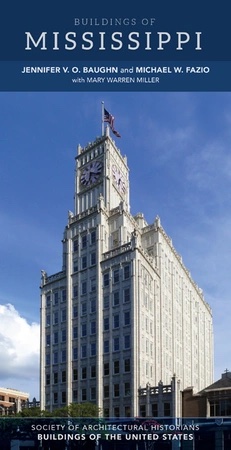
This middle-class African American neighborhood’s heart was Eureka School. The two-story brick Mission-styled school, boasting large well-lit classrooms and a separate Home Science building (demolished), was described by state educational leaders when it opened as “one of the best equipped school buildings” for African Americans in the state. It was Hattiesburg’s only high school for black students until 1949, when Rowan High School (later rebuilt; 500 Martin Luther King Avenue) opened and Eureka was converted to an elementary school. In 1958, Equalization funding from the state added a one-story cafeteria wing designed by an alliance of local architects, Associated School Architects, in consultation with school designers Engelhardt, Engelhardt and Leggett of New York. The school closed in 1987 and sat vacant. An exterior restoration was completed in 2007, and the interior was about to be restored when a February 2013 tornado collapsed the east half of the roof. After renovations, the building now houses the Hattiesburg Civil Rights museum.














